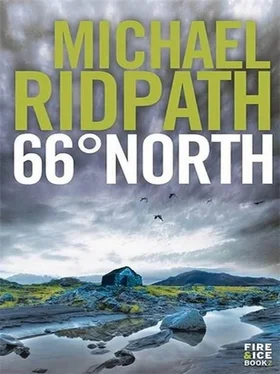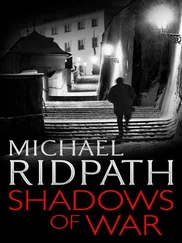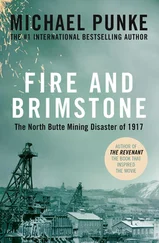Frikki and Magda had talked incessantly as they had walked along the beach, with Frikki doing most of the talking. It was strange: before she had come he had decided he would hide the dullness and the misery of his life, the fact that he found it difficult to get up in the morning, the way his whole week was concerned with looking forward to getting smashed at the weekend. But actually he found he wanted to talk to her about it, and she listened.
He didn’t tell her everything, of course. Nothing about the drugs. Or the petty burglary.
And now they sat in silence, watching the sun on its slow, inexorable descent towards the sea.
‘I know you stole that laptop, Frikki,’ said Magda.
‘What!’ Frikki was shocked out of his reverie. He turned to her in fake outrage. ‘I bought it off Gunni. Cheap. I told you that.’
Magda looked at him steadily, her eyes warm, without judgement.
‘Honest,’ he said.
‘OK,’ she said at last, and turned back to the sea.
The sun slipped further. ‘You’re right,’ said Frikki. ‘I did steal it. Some idiot left it on the front seat of his car. Mine was bust and I needed a computer. I had to keep in touch with you. Do you understand?’
‘I understand,’ said Magda.
She didn’t say: ‘but it was still wrong’. She didn’t have to.
‘I’m sorry,’ said Frikki. ‘Can you forgive me?’
‘Of course, I can forgive you,’ said Magda. ‘But what I really want to do is help you.’
‘What do you mean?’
Magda took hold of his hand. ‘I love you, Frikki. I’m sure this year has been hard for you. I know you’ve been trying to hide it, but I can see you are letting things go. Doing things you shouldn’t do.’
‘You’re right,’ said Frikki, giving her hand a quick squeeze. He took out a cigarette and lit it. Magda didn’t smoke.
‘What did the police want to see you about?’
‘I don’t want to say,’ said Frikki.
‘Was it stealing?’
Frikki didn’t answer. Magda removed her hand. They sat in silence.
‘It was worse than that,’ said Frikki. ‘A lot worse.’
‘Tell me.’
Frikki took a deep breath. And told her.
Magnus went to Ingileif’s apartment that evening. As she cooked supper she talked about her day in the gallery and quizzed him about the case. He told her about missing Björn at Grundarfjördur and about Harpa’s visit to Óskar in London. He mentioned nothing about Unnur.
After dinner he called Sharon Piper in London to tell her about the interview with Harpa. Unsurprisingly, Harpa had said nothing once her lawyer had arrived, and following Baldur’s instructions Magnus had let her go. Magnus also told Sharon about Ísak, the student at the London School of Economics who had had an argument with Harpa the night Gabríel Örn had died. Sharon agreed to talk to him.
When he had finished the call, Ingileif picked up her cello. She was still quite a serious player and practised almost every day. Magnus liked to listen to her, or to read while she was playing. She started on one of her favourites, a piece by Brahms. Magnus knew that whenever he heard that particular piece in future he would think of her.
It was all very domestic. And yet there were things that Magnus didn’t understand about Ingileif. They were not ‘in a relationship’ in the American sense of the word. Ingileif came and went as she pleased, made her own plans. Magnus wasn’t quite sure what his role in her life was. Should they spend time together at the weekend? Should he ask her what she was doing? What was she doing?
Sometimes Magnus wondered whether she was seeing other men. He had asked her once and she had denied it and got angry at him for even thinking it. But he was still suspicious. Perhaps that was because he was a cop, always suspicious.
He dispelled those uncomfortable thoughts from his mind and opened the novel Unnur had given him, Moor and the Man . He decided to read chapters one and two before getting on to chapter three.
It was about a family recently arrived in Reykjavík in 1944. The war and the British and American occupation of Iceland had brought wealth to the country. The man of the title was a young farm labourer named Arnór from an unspecified area of the countryside who had moved to Reykjavík looking for work. The book was well written and the story had gripped Magnus by the time he turned to chapter three, a flashback to Arnór’s childhood.
It was spring, and Arnór and his best friend Jói from a neighbouring farm crept into the barn to play in the hay, something they were strictly forbidden from doing. They heard rustling and grunting. At first they thought that some large animal had found refuge there, or perhaps a tramp. As they crept nearer they recognized the sounds as human, and not just human, but coming from their parents. Arnór’s father was making love to Jói’s mother, the farmer’s wife, right there in the hay.
The two boys ran away without being seen.
A month later, the boys were playing by a secluded lake some distance from the farm. They were on their way home when Arnór realized he had forgotten his knife and returned to the lake. He saw Jói’s father the farmer rowing out from the shore of the tarn, a large sack visible at the bow of the boat. When he reached the middle he paused and shipped his oars. With a fair bit of heaving and cursing, he rolled the heavy sack out of the boat and into the water.
Arnór returned home. His father was late back from a trip to the local town. When he failed to return home that night, his mother raised the alarm. Arnór’s father was never seen nor heard from again. The theory was that he had fled to America, but if he had, he never sent word back to Iceland. And Arnór never told anyone what he had seen.
Magnus closed the book. ‘Jesus Christ,’ he said in English.
Unnur had claimed that Hallgrímur’s father had killed Benedikt’s father, Jóhannes, who was the farmer at Hraun. If the episode in the novel was based on that, that would mean that Benedikt and Hallgrímur were the two small boys, and Jóhannes’s body was in a nearby lake: either Swine Lake or perhaps the lake next to it, Hraunsfjardarvatn.
Magnus hadn’t heard anything about a neighbour being murdered, or even disappearing. But if it had happened when his grandfather was a child, that would have been in the 1930s. Neither had he heard about a writer living nearby, there certainly wasn’t one there during Magnus’s four-year stay in the 1980s. But Benedikt could easily have moved away years before.
Ingileif paused in her playing. She had noticed the stunned expression on Magnus’s face.
‘What are you reading?’ she asked.
Magnus held up the cover of his book.
‘Oh, I’ve read that. It’s not bad. I like him.’
‘I’ve never read anything he wrote until now.’
‘He’s quite good. A bit like Steinbeck, but not that good. I’ve read most of his books, I think. Why the sudden interest? And why the “Jesus Christ”?’
Magnus told Ingileif about his visit to Unnur. He felt slightly guilty about not mentioning it to her before, but she seemed to understand, and she didn’t dwell on what Unnur had said about her affair with his father, for which Magnus was grateful.
‘I remember that chapter,’ Ingileif said. ‘So this woman thinks that the guy who killed Benedikt’s father was your great-grandfather?’
‘That’s right. Gunnar was his name.’
‘Do you remember him? Was he still alive when you were at Bjarnarhöfn?’
‘No, he had been dead a long time. I don’t know very much about him. Apart from how he died.’
‘And how was that?’
‘Have you heard of Búland’s Head?’
‘It’s on the Snaefells Peninsula somewhere, isn’t it? I’ve never been there.’
Читать дальше












